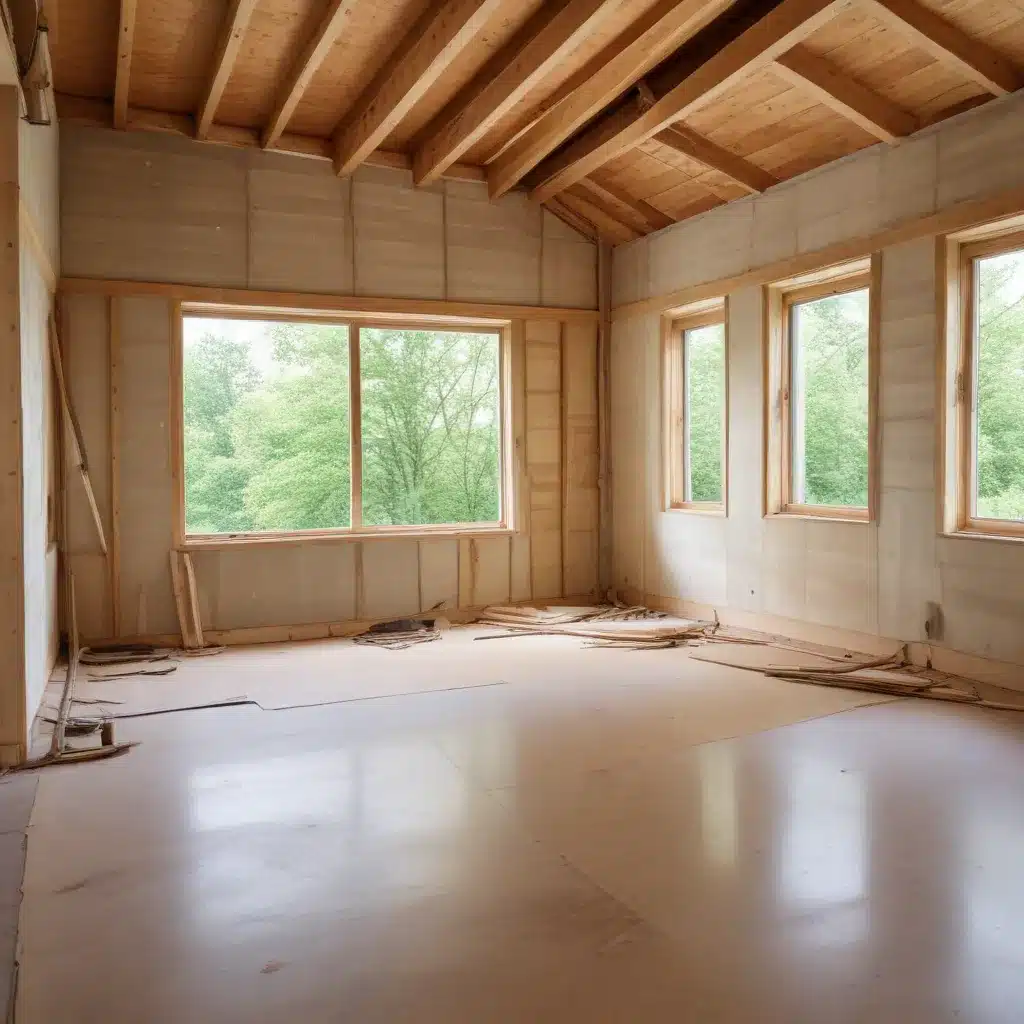
As an experienced home improvement consultant, I’ve seen firsthand how eco-friendly renovations can transform a home, not only improving its environmental impact but also delivering long-term cost savings. In this comprehensive guide for the Reluctant Renovator, we’ll explore the diverse benefits of sustainable home upgrades and dive into the practical steps you can take to make your space more energy-efficient, eco-friendly, and family-friendly.
Benefits of Eco-Friendly Renovations
When it comes to home renovations, the focus is often on aesthetics and functionality. However, incorporating eco-friendly elements into your project can offer a host of advantages that extend far beyond the surface-level changes.
Savings on Energy Bills
One of the primary benefits of eco-friendly renovations is the potential for significant energy cost savings. By upgrading to energy-efficient windows and doors, improving insulation, and installing solar panels, you can dramatically reduce your home’s energy consumption and lower your monthly utility bills. These upgrades may require a higher upfront investment, but the long-term savings can make them a worthwhile investment.
Increase in Home Value
Eco-friendly features can also increase the value of your home. Homebuyers are increasingly seeking properties with sustainable upgrades, as they recognize the long-term benefits of lower energy costs and a reduced environmental footprint. Implementing green building certifications, such as LEED or ENERGY STAR, can further enhance your home’s appeal and resale value.
Positive Environmental Impact
Perhaps the most significant advantage of eco-friendly renovations is the positive impact they have on the environment. By reducing energy consumption, minimizing waste, and incorporating sustainable materials, you can significantly lower your home’s carbon footprint and contribute to a more sustainable future. This not only benefits the planet but also sets a positive example for your community.
Types of Eco-Friendly Renovations
When it comes to eco-friendly home improvements, there are a variety of upgrades to consider. Here are some of the most impactful options:
Energy-Efficient Windows and Doors
Replacing old, drafty windows and doors with energy-efficient models can make a significant difference in your home’s energy usage. Look for products with high Energy Star ratings and low U-values, which indicate better insulating properties.
Solar Panel Installation
Installing solar panels on your roof can greatly reduce your reliance on grid electricity and lower your energy bills. While the initial investment may be substantial, many governments offer incentives and rebates to encourage homeowners to go solar.
Insulation Upgrades
Proper insulation is crucial for maintaining a comfortable indoor temperature and reducing energy consumption. Consider using eco-friendly insulation materials like cellulose, cotton, or sheep’s wool, which have a lower environmental impact than traditional options.
Financing Eco-Friendly Renovations
The upfront costs of eco-friendly renovations can sometimes be a deterrent, but there are several financing options available to help make these upgrades more accessible.
Government Incentives and Rebates
Many governments offer financial incentives and rebates to encourage homeowners to adopt sustainable practices. Research local and national programs that provide tax credits, grants, or low-interest loans for energy-efficient upgrades or the installation of renewable energy systems.
Energy Efficiency Loans
Some lenders offer specialized loans for energy-efficient home improvements, often with lower interest rates and longer repayment terms. These loans can help offset the initial costs of eco-friendly renovations, making them more manageable for homeowners.
Crowdfunding Opportunities
If traditional financing options are not available, consider exploring crowdfunding platforms that support sustainable home projects. This can be a unique way to engage your community and secure funding for your eco-friendly renovation.
Sustainable Materials for Renovations
When undertaking an eco-friendly renovation, it’s crucial to choose sustainable materials that have a minimal impact on the environment. Some options to consider include:
Reclaimed and Recycled Materials
Using reclaimed or recycled materials can reduce waste and the need for new resources. Examples include reclaimed wood for flooring or furniture, recycled metal for fixtures, and recycled glass for countertops or backsplashes.
Low-VOC Paints and Finishes
Volatile organic compounds (VOCs) in paints and finishes can negatively impact indoor air quality. Opt for low-VOC or VOC-free products to maintain a healthier home environment.
Eco-Friendly Flooring Options
Sustainable flooring choices, such as bamboo, cork, or linoleum, can add an eco-friendly touch to your renovation while providing durability and style.
Planning and Executing Eco-Friendly Renovations
Successful eco-friendly renovations require careful planning and execution. Here are some key steps to consider:
Consulting with Energy Auditors
Start by conducting an energy audit of your home to identify areas where you can improve energy efficiency. A professional energy auditor can provide a detailed assessment and recommendations for targeted upgrades.
Hiring Certified Contractors
When it comes to eco-friendly renovations, working with certified contractors who specialize in sustainable building practices is crucial. They can guide you through the process, ensuring your project meets relevant green building standards.
Prioritizing Energy Efficiency Measures
When planning your renovation, focus on energy-efficient upgrades first, as these can have the most significant impact on your home’s carbon footprint and utility bills. Then, consider other sustainable elements, such as water conservation and indoor air quality improvements.
By incorporating these eco-friendly strategies into your home renovation, you can create a more energy-efficient, cost-effective, and environmentally responsible living space. Not only will you enjoy the immediate benefits, but you’ll also be making a meaningful contribution to a sustainable future.
If you’re ready to transform your home with eco-friendly renovations, visit Reluctant Renovator to explore more resources and connect with like-minded homeowners and renovation enthusiasts.



